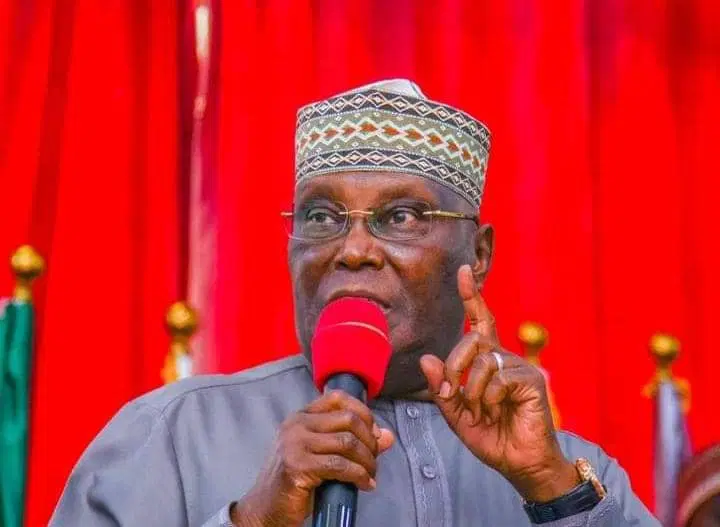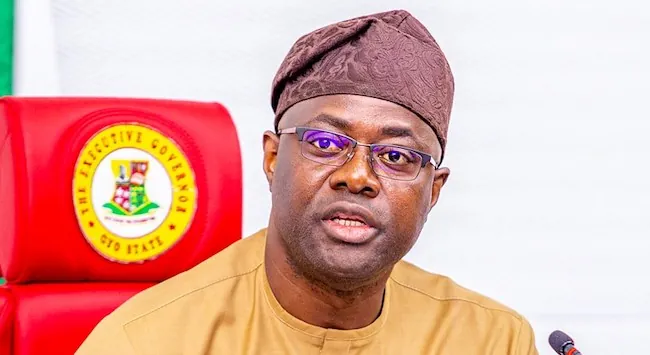The Peoples Democratic Party (PDP) stands at a crucial crossroads as it prepares for the 2027 presidential election. Oyo State Governor Seyi Makinde has made a bold declaration that has sent ripples through the party: he believes that Atiku Abubakar’s departure from the PDP would bring freedom to the party and open up new possibilities for the next election cycle. This statement is not just about one man’s political future—it represents a fundamental debate about the direction of Nigeria’s main opposition party and whether it can reinvent itself to challenge the ruling All Progressives Congress (APC) effectively.
The Weight of History
To understand the significance of Makinde’s statement, one must first appreciate the role that Atiku Abubakar has played in the PDP for over two decades. He has been the party’s presidential candidate three times—in 2007, 2019, and 2023—and has remained a dominant figure in party politics throughout this period. His influence extends far beyond his candidacies; he has been a kingmaker, a financier, and a symbol of the party’s northern establishment.
However, this long tenure has also created what many see as a problem. The PDP has struggled to break free from the shadow of its past, and Atiku’s continued presence has made it difficult for new voices and ideas to emerge. The freedom that Makinde speaks of is not just about getting rid of one person—it is about liberating the party from the constraints of its own history and allowing it to evolve.

The Case for Change
Makinde’s argument for freedom is rooted in electoral reality. The PDP has lost three consecutive presidential elections, and there is growing recognition that the party needs to try something different. The current approach, which has relied heavily on familiar faces and traditional methods, has not worked. The definition of insanity, as the saying goes, is doing the same thing over and over again while expecting different results.
The governor’s call for freedom reflects a growing sentiment within the party that it needs to appeal to younger voters, embrace new technology, and present fresh ideas. Atiku, at 77 years old and having run multiple times, may simply not be the right person to lead this transformation. His departure could create space for younger, more dynamic leaders to emerge.
“The PDP needs new energy, new ideas, and new leadership. Atiku’s departure would give us the freedom to rebuild and reconnect with the Nigerian people in a way that can win elections.”
— A PDP strategist
The Challenges of Transition
However, the freedom that Makinde envisions is not without its challenges. Atiku’s departure would create a significant vacuum in the party, both in terms of leadership and resources. He has been one of the PDP’s most important fundraisers, and his political network spans the entire country. Replacing this infrastructure would not be easy.
There is also the question of unity. The PDP has been plagued by internal divisions, and Atiku’s departure could exacerbate these problems rather than solve them. Without a unifying figure, the party could fragment further, with different factions fighting for control. The freedom to choose new leadership could become the freedom to self-destruct.
The Regional Dynamics
Makinde’s statement also highlights the complex regional dynamics within the PDP. As a southwestern governor, he represents a part of Nigeria that has felt marginalized within the party’s power structure. The PDP has traditionally been dominated by northern politicians, and Atiku’s continued prominence has reinforced this perception.
The freedom that Makinde seeks may be as much about regional balance as it is about generational change. The party needs to find a way to appeal to all regions of Nigeria, and this may require moving beyond its traditional northern base. Atiku’s departure could open up opportunities for leaders from other regions to emerge.

The Broader Implications
The debate over Atiku’s future in the PDP is part of a larger conversation about the future of Nigerian politics. The country is changing rapidly, with a young population that is increasingly impatient with the old ways of doing things. The freedom to embrace this change may be essential for any political party that wants to remain relevant.
The PDP’s challenge is to find a way to honor its past while embracing the future. This requires leaders who can bridge the gap between the old and the new, who can maintain the party’s core values while adapting to changing circumstances.
The Path Forward
The freedom that Makinde envisions will not come automatically with Atiku’s departure. It will require hard work, careful planning, and a commitment to building something new. The party will need to develop new policies, new strategies, and new ways of connecting with voters.
This process will also require honest self-reflection. The PDP will need to examine why it has lost three consecutive elections and what it needs to do differently. The freedom to change must be accompanied by the wisdom to know what changes are needed.
The Stakes Are High
The 2027 election will be crucial for the PDP. If the party cannot find a way to reinvent itself and present a compelling alternative to the APC, it may face irrelevance. The freedom that Makinde speaks of may be the party’s last chance to demonstrate that it can be a viable opposition force.
The challenge now is to turn this freedom into action. The PDP must decide whether it will embrace the change that Makinde advocates or continue with the status quo. The choice it makes will determine not just the party’s future, but the future of democracy in Nigeria.
Conclusion
Governor Makinde’s statement about Atiku’s departure bringing freedom to the PDP has opened up an important debate about the future of Nigeria’s main opposition party. The freedom he envisions is not just about getting rid of one person—it is about liberating the party from the constraints that have held it back and allowing it to evolve into something that can win elections.
Whether this freedom leads to success or failure will depend on how the party handles the transition and what it does with the opportunities that change will create. The stakes could not be higher.
Stay woke. Stay tuned. Stay with AKEWE NEWS.